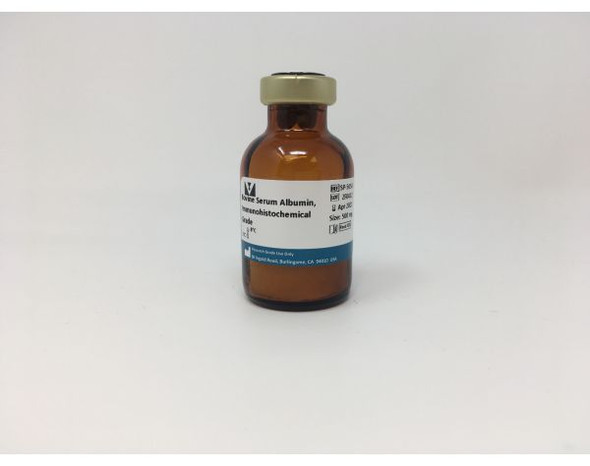Description
Application: IHC(p)
For the specific detection of protein oxidation by ROS. Reactive oxygen species (ROS) are produced as a result of normal cell metabolism or by exposure to ionizing radiation, chemicals, or other environmental stress. ROS are well known to promote non-specific protein oxidation, with negative effects protein structure and function. Typical ROS-induced protein modifications include the transformation of lysine, arginine, proline, and threonine side chain amines into aminoacyl carbonyls. The chemical stability of these carbonyl derivatives allows their detection and quantification, providing a sensitive and reliable marker of ROS-mediated protein oxidation. In the central feature of this kit, carbonyl groups in tissue are first derivitized by reaction with 2,4-Dinitrophenylhydrazine (DNPH). DNPH-derivitized carbonyls are then detected using an anti-DNP specific antibody suitable for immunohistochemical procedures. The Protein Carbonyls Immunohistochemical Staining Kit is the first kit to enable detection of protein carbonyls by immunohistochemical staining. A detection kit for protein carbonyls in cell lysates by Western blotting with anti-DNP antibody is also available (Cat No.SML-ROIK03-EX).
View AllClose
For the specific detection of protein oxidation by ROS. Reactive oxygen species (ROS) are produced as a result of normal cell metabolism or by exposure to ionizing radiation, chemicals, or other environmental stress. ROS are well known to promote non-specific protein oxidation, with negative effects protein structure and function. Typical ROS-induced protein modifications include the transformation of lysine, arginine, proline, and threonine side chain amines into aminoacyl carbonyls. The chemical stability of these carbonyl derivatives allows their detection and quantification, providing a sensitive and reliable marker of ROS-mediated protein oxidation. In the central feature of this kit, carbonyl groups in tissue are first derivitized by reaction with 2,4-Dinitrophenylhydrazine (DNPH). DNPH-derivitized carbonyls are then detected using an anti-DNP specific antibody suitable for immunohistochemical procedures. The Protein Carbonyls Immunohistochemical Staining Kit is the first kit to enable detection of protein carbonyls by immunohistochemical staining. A detection kit for protein carbonyls in cell lysates by Western blotting with anti-DNP antibody is also available (Cat No.SML-ROIK03-EX).






![Human Carbonyl reductase [NADPH] 1 (CBR1/CBR/CRN) ELISA kit Human Carbonyl reductase [NADPH] 1 (CBR1/CBR/CRN) ELISA kit](https://cdn11.bigcommerce.com/s-29gjipdr4d/images/stencil/590x590/products/4151/4677/csb-e17009h_human-carbonyl-reductase-nadph-1-cbr1cbrcrn-elisa-kit_4166__64511.1620918520__43776.1634136551.png?c=1)